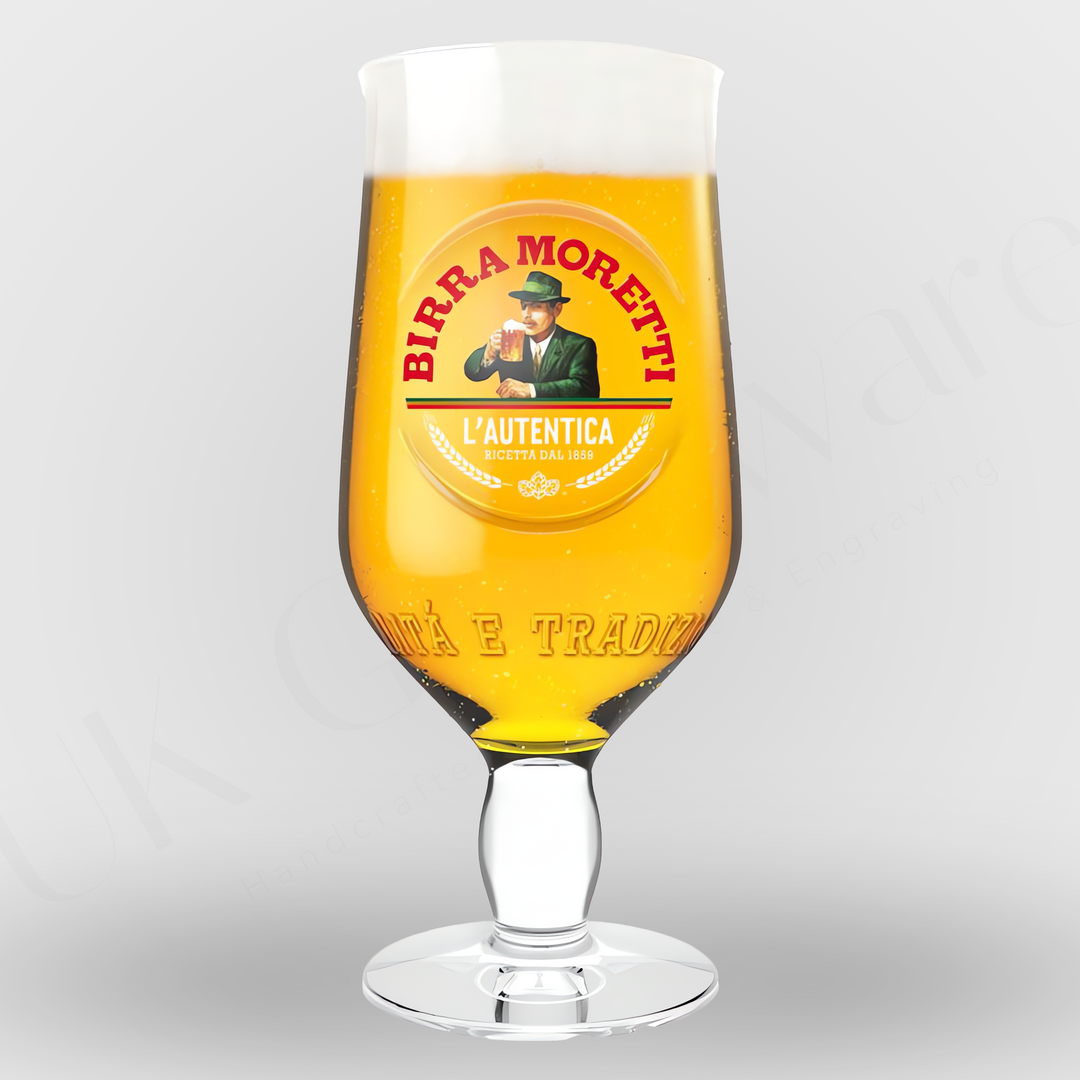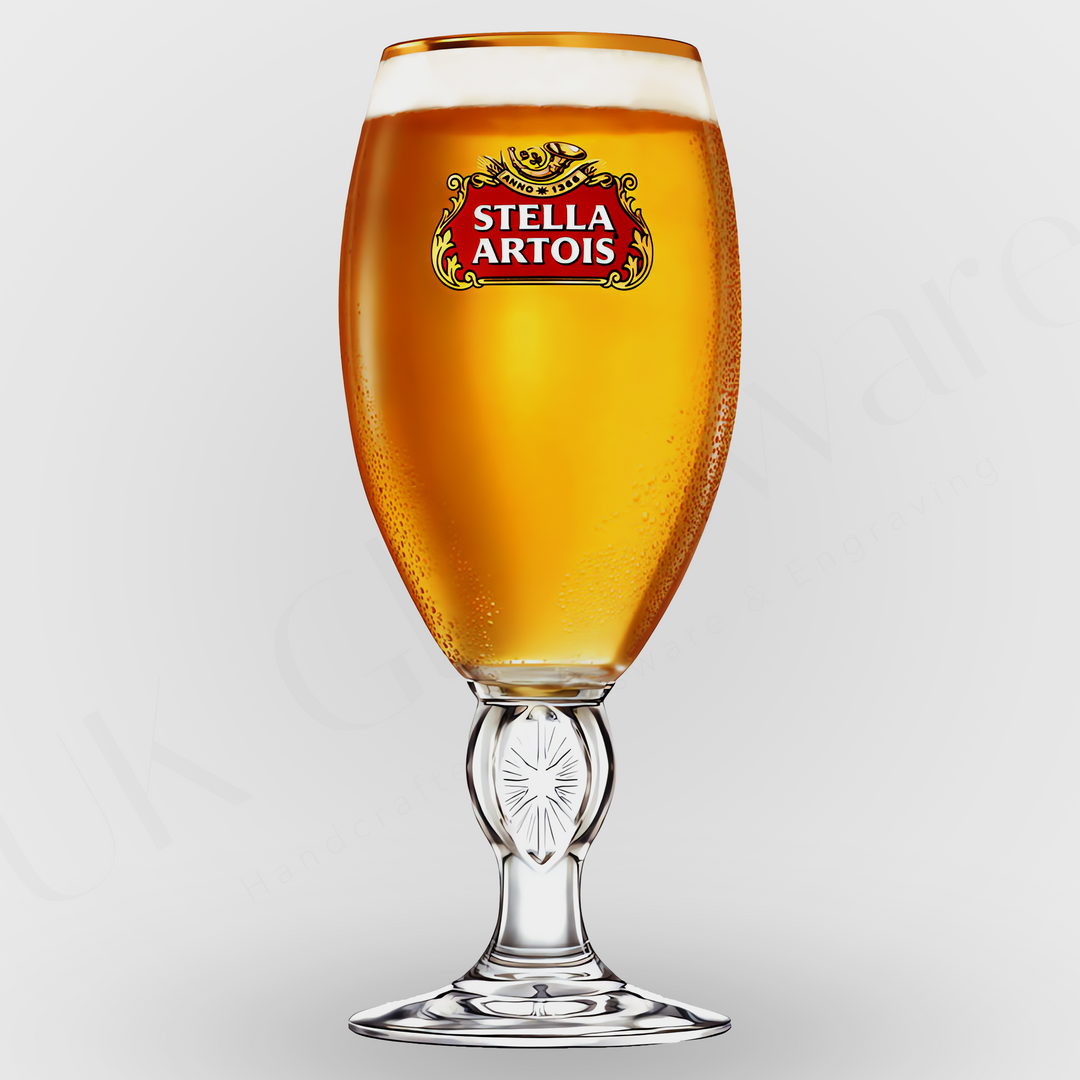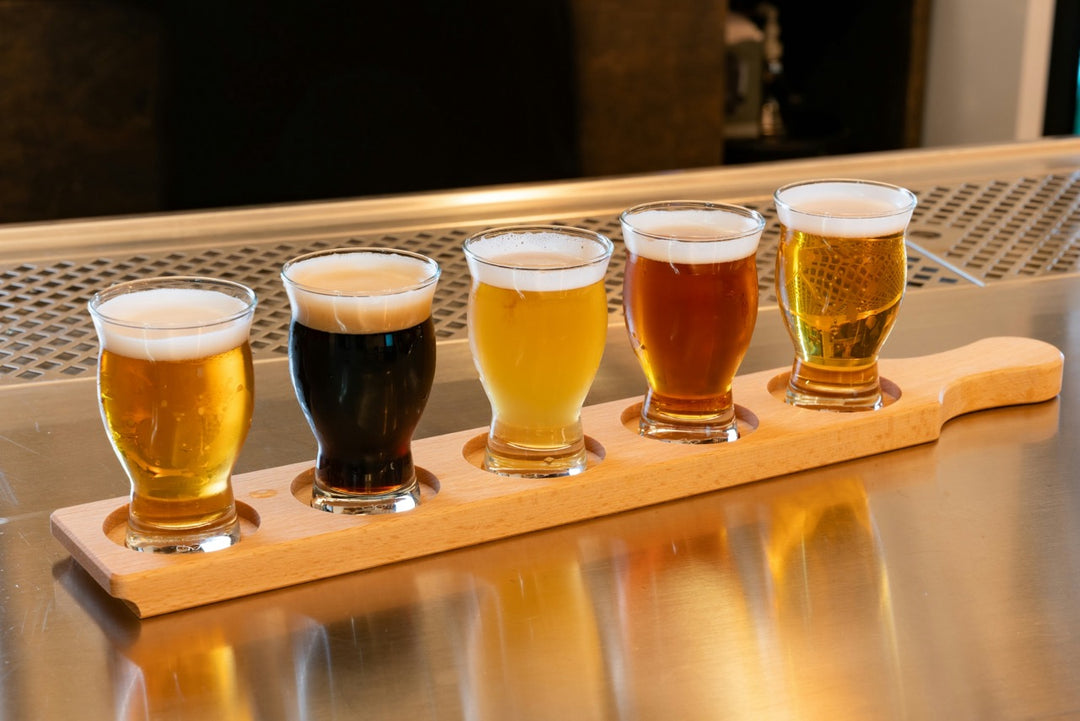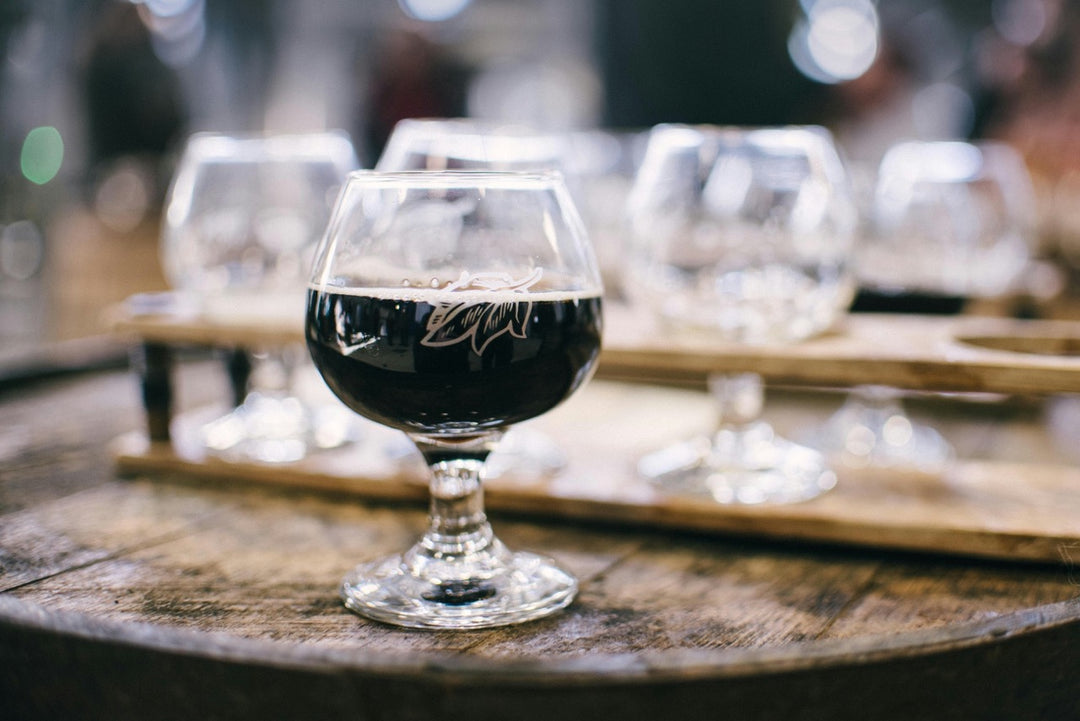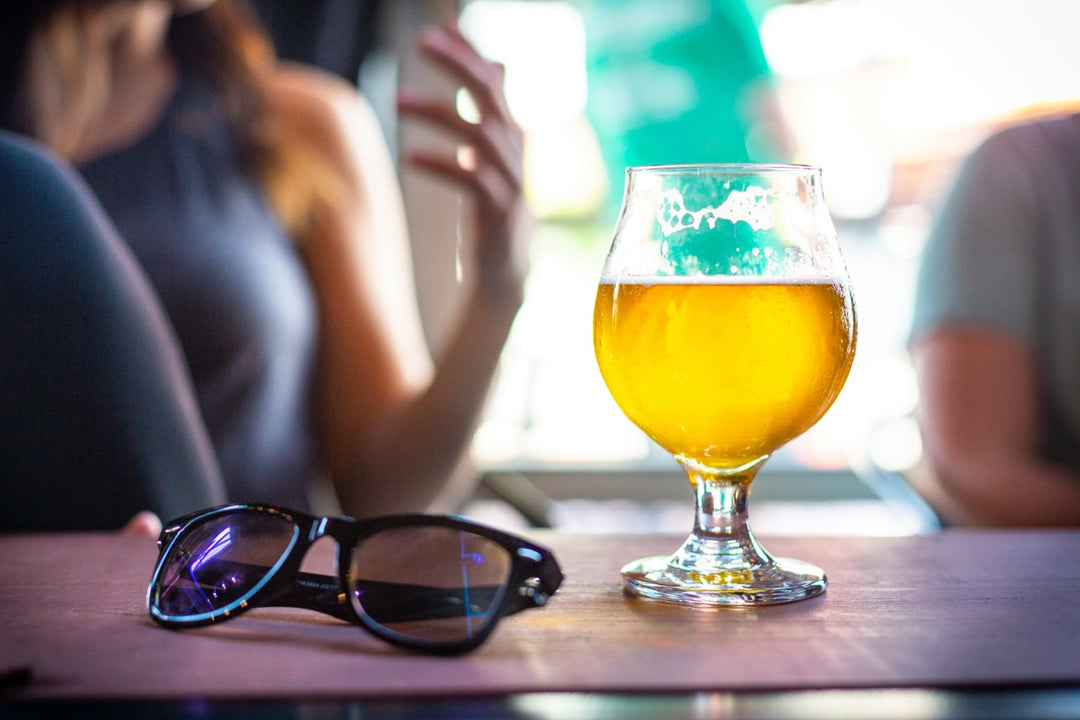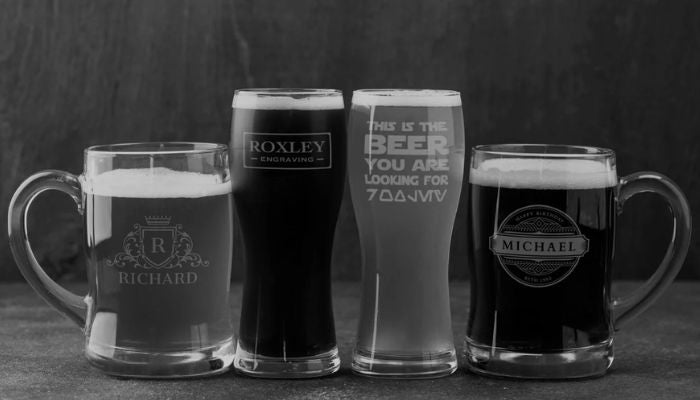The Ultimate Guide To Beer Glass Collecting
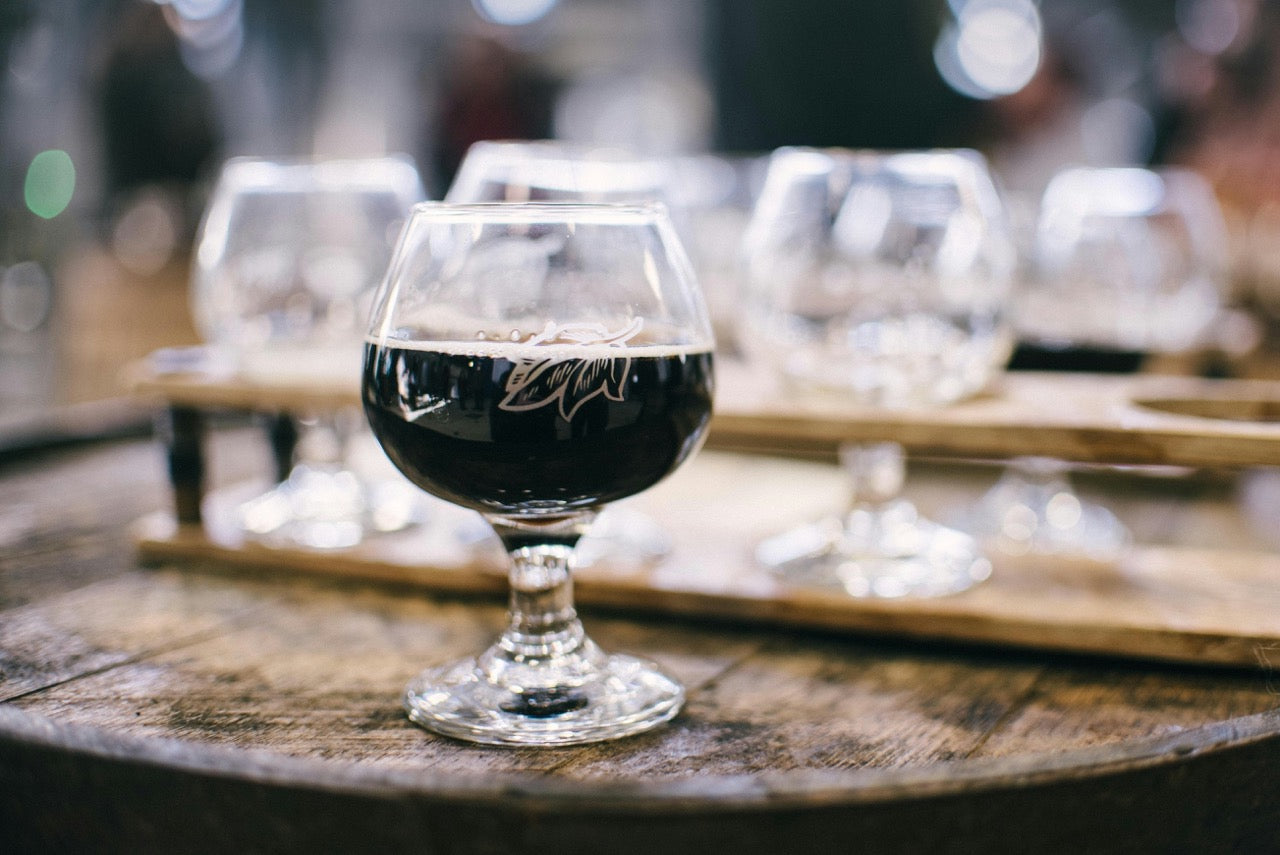
Beer glasses tell tales. Each one speaks of brewing traditions and brand identities. Collecting these unique beer glasses offers a glimpse into beer culture’s rich world.
Sipping a lager from a glass with a century-old German brewery logo feels special. The weight, the etched design. It’s more than a drink vessel. It’s history in your hand.
Some collectors seek rare finds. Event glasses or discontinued brands become prized possessions. Others enjoy variety, gathering glasses from breweries far and wide. Almost all collectors are looking at the latest releases, wondering what could become the next revered glass.
Imagine displaying a shelf of modern and vintage beer glasses, each from a different country or era. It’s like having a miniature beer museum at home or in your garage bar. Every glass becomes a conversation starter, a piece of brewing lore waiting to be shared.
Glass Styles Explained
Beer glass styles vary greatly. Each shape serves a purpose, enhancing the drinking experience uniquely.
Pint glasses dominate pubs. British establishments tend to prefer nonic pints, with a subtle bulge near the rim. This prevents chipping and eases stacking. American bars prefer straight-sided pints, often showing brewery logos.
Belgian ale and IPA fans favour tulip glasses. The bulbous body and flared rim capture aromas and support foam. This design lets hoppy or malty scents reach the nose with each sip.
Wheat beer enthusiasts seek tall, slender weizen glasses. These show off cloudy appearances and maintain fluffy heads. German wheat beer brands produce striking examples.
Stout lovers might hunt for sturdy, thick-walled glasses. These keep the dark brew cool while showcasing its rich colour. Some even feature intricate etchings at the bottom, creating a mesmerising cascade effect as bubbles rise.
For those who enjoy fruit beers or lambics, stemmed glasses resembling wine glasses are popular. These elegant vessels allow for swirling to release complex aromas, adding to the tasting experience.
Finding Your Treasures
Building a collection requires time and a passion for the brands behind the vessels. A great place to begin is with breweries who produce unique glasses. Beavertown are a great example of this.
Beer festivals yield unique finds. They feature limited edition glasses unavailable elsewhere. Glasses provided for special events can become cherished keepsakes.
Online markets offer vast possibilities. Collectible beer glasses from defunct breweries or rare promotional items surface here. Verify condition and authenticity when purchasing online.
Speciality glass shops like ourselves here at UKGlassware stock the latest releases and hard-to-find items.
Don’t overlook local car boot or antique shops too. Sometimes, hidden gems lurk in dusty corners.
For the adventurous collector, planning beer-themed holidays can be rewarding. Visiting renowned brewing regions allows you to acquire glasses directly from the source, often with unique stories attached.
Recognising Valuable Pieces
Certain factors make glasses desirable to collectors.
Condition matters most. Pristine glasses, free from chips or faded logos, hold highest regard. If the glass is still in its original packaging, it will generally hold a higher value
Limited editions often become coveted. Event or anniversary glasses may also appreciate over time. Brewery-artist collaborations for special designs attract many collectors too.
Age and scarcity influence value. Vintage beer glasses from closed breweries can fetch high prices. Older and rarer pieces intrigue serious collectors most.
Provenance can significantly boost a glass’s value. A glass with documented history, perhaps used in a famous pub or owned by a brewing icon, becomes more than just glassware, it’s a piece of beer history.
Some collectors focus on glasses with printing errors or production quirks. These errors can make a common glass extraordinarily rare and valuable.
The Most Expensive Collectible Branded Beer Glasses Ever Sold
For serious collectors, certain beer glasses hold immense value, often fetching eye-watering prices at auctions and private sales. These prized items aren’t just any glassware, they are pieces of brewing history, often tied to famous breweries, special events, or rare, limited editions.
One of the most famous examples is a vintage beer glass from the now-defunct Bass Brewery, a renowned British brand. A rare 19th-century glass etched with the brewery’s original logo was sold at auction for over $5,000. The age, condition, and historical significance of the glass made it a highly sought-after item among collectors.
Limited edition event glasses can also reach high values. For example, a glass created to commemorate the 150th anniversary of Guinness fetched nearly $3,000 due to its rarity and pristine condition. These types of collectible beer glasses, tied to significant brewing milestones, often appreciate over time, especially if they remain in mint condition.
Some modern collectible glasses from highly respected craft breweries have also become valuable. Beavertown Brewery produced a limited run of artist-designed glasses for a festival event, with some of these now being sold for over $1,000 due to the brewery’s growing reputation and the unique design of the glasses.
These high-price sales reflect the passion and dedication of the glassware collecting community. Whether it’s the historical value, limited availability, or ties to a beloved brewery, these collectible branded beer glasses continue to fascinate and command significant sums in the market.
Caring for Your Collection
Proper care maintains value and beauty. Hand wash with mild soap. Harsh detergents and high temperatures can harm logos and glass structures.
Storage deserves consideration. Display glasses to prevent contact between pieces. Glass-fronted cabinets allow safe storage while showcasing the collection.
Consider investing in soft, lint-free cloths for drying and polishing. This gentle treatment helps preserve delicate etchings and printed logos.
For particularly valuable pieces, individual padded storage boxes can offer extra protection. Climate control is also worth considering, as extreme temperature fluctuations can stress glass over time.
The Collector Community
Collecting connects enthusiasts. Online forums and social media groups let collectors share finds, trade glasses, and discuss the hobby.
Some organise meetups or attend breweriana conventions. These events offer chances to expand collections and learn from experienced collectors.
Local beer clubs or homebrew societies often welcome glass collectors. These gatherings can be great places to network, trade, and learn about regional brewing history.
Growing Your Collection

Starting doesn’t require large investment. Many breweries offer affordable glassware to begin a collection. As knowledge grows, you might seek rarer or more valuable pieces.
Beavertown Brewery is known for its creative and unique glass designs, which could make great additions to a budding collection, which are available here at UKGlassware.
Collect what appeals to you. Whether glasses from your favourite breweries, particular styles, or pieces with interesting histories, your collection should reflect your interests.
Don’t be afraid to specialise. Some collectors focus on a particular era, region, or style of glass. This focused approach can make your collection unique and potentially more valuable.
Keep an eye on emerging craft breweries. Their early glassware might become coveted in the future as these breweries grow in popularity or potentially close.
A collection’s value transcends money. Stories behind each glass, acquisition memories, and sharing joy with others make collecting truly rewarding.
Remember, each glass in your collection is a tiny time capsule. It captures a moment in brewing history, whether it’s a glass from a long-gone local pub or a limited edition release from a modern craft brewery. As you build your collection, you’re also preserving a part of cultural heritage.




